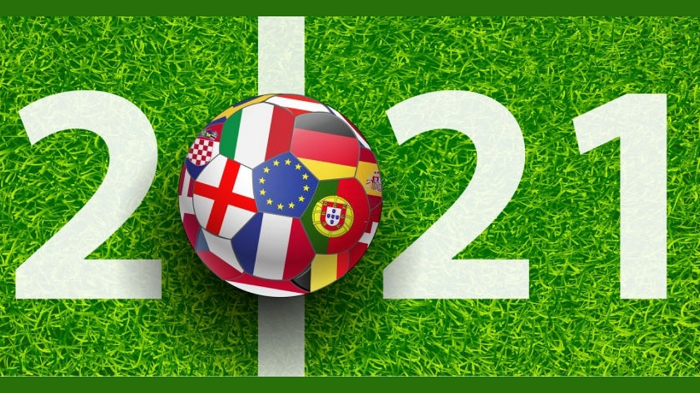UEFA requests on the UK Government to alleviate its limits on anti-Covid so 2,500 officials can attend the final euro without passing by the isolation box. The meeting scheduled for 11 July might be held in Hungary in the event of a refusal.
Due to the spread of the Coronavirus on the planet, the vast majority of football championships are at a standstill. Scheduled from June 12 to July 12, the Euro could have taken place on these dates if the virus had subsided or if UEFA had decided to keep it behind closed doors in empty enclosures. Besides the disappointment towards the supporters, this would also have posed the problem of the end of the European championships. Impossible with the maintenance of the Euro in the summer of 2020 to end the seasons started in domestic and continental competitions. This would have caused unprecedented chaos and huge sporting and financial disputes with the clubs. A (new) cataclysm has been averted.
The European football organization in charge of organizing the euro would consider several scenarios if the city of the host still remained subject to these limitations, which could prevent fans, officials, sponsors, and invited companies from taking part, visibly unsatisfied by the anti-Covid restrictions and the current quarantine requirements when it entered the territory of the Channel.
Each team will play 3 group matches, the winning team will get 3 points, draw 1 point and lose 0 points, the last 2 matches of each group will take place at the same time. The two teams with the first and second place in each group, along with the four best third-placed teams, will advance to the knockout round of 16 teams.
How was this decision received?
Positively. Collective membership is highlighted on this point. And when you know the repeated power and influence struggles between clubs and selections, it is not an easy task. As for the FFF and the Blues, Noël Le Graët and Didier Deschamps did not hide their wish to see the Euro shifted by one year, for obvious public health reasons. The feeling turns out to be the same with Italians and Germans. Most of the selections, as well as supporters, are happy with the timing of the announcement, which allows everyone to anticipate and anticipate things a few months in advance.
What competitions were planned for 2021?
Here lies undoubtedly the greatest complexity of the file: finding an “ideal” date for the postponement in a football calendar more overloaded than ever. It is now official with a competition expected between June 11 and July 11, 2021. At that time, four competitions were in direct confrontation with the Euro. The Club World Cup organized in China (June 17-July 4) by FIFA, but also the Nations League (final phase in June), the Women’s Euro played in England (July 7 – August 1, 2021) or even Euro men’s hopes scheduled for June in Hungary and Slovenia. The last two cited should be postponed to 2022 and the League of Nations canceled. It remains to find common ground for the future Club World Cup, ultra-remunerative and symbolic for FIFA.
Also Read: Benefits of fantasy football
How much will the postponement of the Euro cost?
The note promises to be rather heavy with an amount estimated at more than 357 million dollars. With this postponement, UEFA rules out the option of a Euro behind closed doors or of a cancellation, which would have deprived the European confederation of an important windfall of television rights.
In 2016, the Euro generated a total turnover of 2.2 billion dollars. By way of comparison, the postponement of the Euro would cost around 357 million dollars.
As such, UEFA calls for substantial aid from the clubs, the first beneficiaries of the postponement, so as not to have to bear the hefty bill alone. An invoice that includes the rental of the stadiums, hotel reservations already paid, or refunds to supporters. 28 million requests for tickets, a record, had been made for one Euro which was to take place this summer in 12 countries. Amsterdam (Netherlands), Bilbao (Spain), Baku (Azerbaijan), Bucharest (Romania), Budapest (Hungary), Copenhagen (Denmark), Dublin (Ireland), Glasgow (Scotland), London (England), Munich (Germany), Rome (Italy) and Saint Petersburg (Russia) were selected on September 19, 2014.
But now the Euro 2021 is going on 11 countries instead of 12, Dublin (Ireland) has been removed and along with that, the Bilbao (Spain) matches are going on Seville (Spain) in Sánchez Pizjuan Stadium.
Jacques Lambert, boss of the organizing committee for Euro 2016, said “Even if there are extremely sophisticated insurance contracts that are put in place to cover a maximum of contingencies, it is certain that the financial consequences of a postponement will be extremely heavy. But the income from one Euro will be more than enough to cover them.” Regarding partnerships and sponsorship contracts, no financial impact will be felt on this point, given the “simple” postponement of one year. Same for TV broadcasters, for which the Euro is an important source of income.

